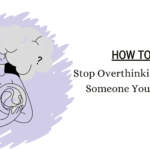How to Lower Your Anxiety Naturally: Anxiety is a natural human response to stress or fear. However, when it becomes chronic or overwhelming, it can significantly impact daily life, making it difficult to function or enjoy activities that once brought joy. Many people turn to medication or therapy to manage anxiety, but there are also natural, holistic methods that can help lower anxiety without the use of prescription drugs. In this article, we’ll explore several effective natural remedies and techniques to help reduce anxiety and regain a sense of calm and control.
Also Read:
Understanding Anxiety
Before delving into natural remedies, it’s important to understand what anxiety is and why it happens. Anxiety is a feeling of unease, such as worry or fear, that can range from mild to severe. It’s often triggered by stress or uncertainty about future events, and it’s a normal emotional response that helps keep us alert in dangerous or stressful situations.
However, when anxiety becomes persistent, it can become an issue. Chronic anxiety can be triggered by a variety of factors such as:
- Work or school pressure
- Health concerns
- Relationship stress
- Financial issues
- Traumatic experiences
Regardless of the cause, managing anxiety naturally can help reduce its intensity and improve your quality of life.
Natural Ways to Lower Anxiety
1. Practice Deep Breathing Exercises
One of the quickest and most effective ways to manage anxiety is through deep breathing exercises. Deep breathing stimulates the parasympathetic nervous system, which helps relax your body and mind. A simple technique to try is diaphragmatic breathing (also known as abdominal breathing). Here’s how you can practice it:
- Sit or lie down in a comfortable position.
- Close your eyes and place one hand on your abdomen.
- Take a deep breath in through your nose for 4 seconds, allowing your abdomen to rise as you fill your lungs with air.
- Exhale slowly and fully through your mouth for 6-8 seconds, letting go of any tension in your body.
- Repeat for 5-10 minutes, focusing only on your breath and the present moment.
Deep breathing helps lower heart rate, reduce blood pressure, and calm the mind, making it a great tool for anxiety relief.
2. Exercise Regularly
Physical activity is one of the best natural anxiety reducers. Exercise releases endorphins, chemicals in the brain that act as natural painkillers and mood enhancers. It also helps reduce the levels of stress hormones such as cortisol. Regular physical activity can help manage anxiety in the long term.
Here are a few types of exercise that can help reduce anxiety:
- Aerobic Exercise: Activities like running, cycling, or swimming can boost cardiovascular health while calming the mind.
- Yoga: Yoga combines physical postures, breathing exercises, and meditation to promote relaxation and mental clarity. It has been shown to decrease anxiety and stress.
- Walking: Even a brisk 20-30 minute walk in nature can help reduce anxiety levels. Walking helps distract the mind and allows you to release pent-up tension.
3. Practice Mindfulness and Meditation
Mindfulness and meditation are powerful tools to help reduce anxiety by bringing attention to the present moment, reducing overthinking, and increasing emotional regulation.
- Mindfulness Meditation: Mindfulness involves focusing on your breath, bodily sensations, and the present moment without judgment. You can practice mindfulness anywhere, whether you’re sitting, standing, or walking. Start by focusing on your breath, and whenever your mind starts to wander, gently guide your attention back to your breath.
- Guided Meditation: If you’re new to meditation, guided sessions are a great option. Many apps and websites offer free guided meditation for relaxation, anxiety relief, and sleep.
By practicing mindfulness or meditation regularly, you train your brain to manage stress better, leading to lower anxiety levels over time.
4. Herbal Remedies
Certain herbs have been shown to help reduce anxiety naturally. Here are some commonly used herbs for anxiety:
- Lavender: Lavender is known for its calming properties. Studies suggest that inhaling lavender oil or drinking lavender tea can help reduce anxiety symptoms. You can diffuse lavender oil in your home, use it in a bath, or apply diluted oil to your wrists for a calming effect.
- Chamomile: Chamomile is a soothing herb that can help calm nerves and promote relaxation. Drinking chamomile tea before bed may help reduce anxiety and improve sleep.
- Passionflower: This herb has been traditionally used to treat anxiety. Passionflower extract has shown promising results in reducing symptoms of anxiety, and it can be found in supplements or teas.
- Ashwagandha: An adaptogenic herb, ashwagandha helps the body adapt to stress and reduce anxiety. Research suggests that ashwagandha supplements can lower cortisol levels and reduce stress.
Before using herbal remedies, it’s important to consult with a healthcare professional, especially if you are on medication or have health concerns.
5. Reduce Caffeine and Sugar Intake
Caffeine and sugar can exacerbate anxiety by stimulating the nervous system and causing spikes in blood sugar levels. If you tend to drink a lot of coffee, soda, or energy drinks, consider cutting back or eliminating them to see if it helps reduce your anxiety.
Instead, opt for calming beverages like herbal teas (e.g., chamomile or peppermint) or drink water throughout the day to stay hydrated and keep your nervous system calm.
6. Establish a Healthy Sleep Routine
Sleep and anxiety are closely linked. Poor sleep can worsen anxiety, and anxiety can make it harder to fall asleep. Establishing a healthy sleep routine is essential for managing anxiety naturally. Here are some tips to improve your sleep:
- Go to bed and wake up at the same time every day.
- Create a relaxing bedtime routine (e.g., reading, listening to calming music).
- Avoid caffeine and heavy meals close to bedtime.
- Make your sleep environment comfortable (dark, quiet, and cool).
A well-rested body and mind are better equipped to handle stress and anxiety.
7. Journaling
Writing down your thoughts and feelings can be a great way to release pent-up emotions and process difficult experiences. Journaling allows you to gain perspective on your anxieties, identify patterns in your thoughts, and gain clarity on what may be triggering your stress.
Try writing for 10-15 minutes every day. You can jot down your worries, make lists, or even write about things you’re grateful for. Journaling helps create emotional distance from anxiety and promotes self-reflection.
8. Connect with Nature
Spending time outdoors in nature has been proven to reduce anxiety and stress. Natural environments have a calming effect on the mind and body. Whether it’s a walk in the park, a hike in the mountains, or simply sitting in your garden, connecting with nature can help lower your anxiety levels and improve your overall well-being.
9. Social Support
Sometimes, the best remedy for anxiety is simply talking to someone who understands. Sharing your feelings with a trusted friend, family member, or therapist can help you gain perspective, release emotional tension, and feel less isolated in your struggle. Social support plays a crucial role in mental health, and knowing that someone cares about you can alleviate anxiety.
Conclusion
Lowering anxiety naturally is possible, and it often involves a combination of different strategies. By practicing deep breathing, regular exercise, mindfulness, and making healthy lifestyle choices, you can significantly reduce your anxiety levels and improve your mental well-being. Remember, it’s important to find the techniques that work best for you, as everyone responds differently. Additionally, if anxiety becomes overwhelming, it’s always a good idea to consult with a healthcare professional to explore further treatment options.








